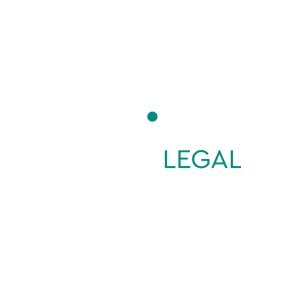Best Oil, Gas & Energy Lawyers in Quatre Soeurs
Share your needs with us, get contacted by law firms.
Free. Takes 2 min.
List of the best lawyers in Quatre Soeurs, Mauritius
About Oil, Gas & Energy Law in Quatre Soeurs, Mauritius
Oil, Gas & Energy law in Quatre Soeurs, Mauritius encompasses a wide range of legal issues and regulatory frameworks. This sector is relatively nascent in Mauritius compared to more established industries. However, given the island's strategic location and the increasing interest in offshore energy resources, the importance of this field is expected to grow. The legal landscape covers exploration, extraction, environmental compliance, licensing, and distribution, all of which are regulated by national and, in certain cases, international laws.
Why You May Need a Lawyer
Securing expert legal guidance in the field of Oil, Gas & Energy can be crucial for various reasons. Here are some common situations where legal help may be required:
- Licensing and Permits: Navigating the procedures to obtain required licenses for exploration and extraction.
- Environmental Compliance: Ensuring that operations conform to environmental laws and regulations.
- Contract Negotiations: Drafting and negotiating contracts with partners, suppliers, and contractors.
- Dispute Resolution: Resolving legal disputes related to operations, including land use and environmental impacts.
- Regulatory Compliance: Keeping up with changes in local laws and regulations.
- Risk Management: Identifying and mitigating potential legal risks.
Local Laws Overview
Quatre Soeurs, like the rest of Mauritius, adheres to a framework of laws that regulate the Oil, Gas & Energy sector. Key aspects include:
- Energy Act: Governs the generation, distribution, and consumption of energy.
- Environmental Protection Act: Establishes guidelines to ensure that energy projects do not harm the environment.
- National Energy Policy: Outlines the government's vision and strategic plans for the energy sector.
- Offshore Petroleum and Gas Act: Regulates the exploration and extraction of offshore oil and gas resources.
- Local Government Regulations: Undefined laws that might impact land use and local community involvement.
Frequently Asked Questions
What are the first steps to take when exploring for oil or gas in Quatre Soeurs?
The initial steps include conducting a feasibility study, obtaining the necessary exploration licenses, and ensuring compliance with environmental regulations.
What permits are needed for energy projects?
Several permits may be needed including environmental clearances, exploration licenses, and specific permits related to land use and construction.
How are energy projects typically financed in Mauritius?
Energy projects can be financed through a combination of government grants, private investments, and international funding bodies.
What are the risks involved in energy projects?
Risks include environmental impact, regulatory changes, project financing issues, and potential legal disputes.
How can I ensure that my energy project is environmentally compliant?
Engage with an environmental consultant to conduct an Environmental Impact Assessment (EIA) and ensure that your project adheres to local environmental laws and regulations.
What role do local communities play in energy projects?
Local communities often have a significant role, particularly in terms of land use approval and environmental oversight.
What are the common legal issues that arise in energy contracts?
Common issues include breaches of contract terms, disputes over project timelines, and disagreements over financial arrangements.
What is the process for resolving energy disputes?
Disputes can be resolved through mediation, arbitration, or litigation, depending on the nature of the disagreement and the terms of the contract.
Do local laws favor renewable energy projects?
Yes, Mauritius has a strong emphasis on promoting renewable energy projects as part of its National Energy Policy.
Are there any tax incentives for energy projects in Mauritius?
Yes, there may be tax incentives available, particularly for renewable energy projects. Consult with a tax advisor for detailed information.
Additional Resources
For further information and legal assistance, consider reaching out to the following resources:
- Ministry of Energy and Public Utilities: Provides guidelines, regulations, and strategic plans for the energy sector.
- Mauritius Renewable Energy Agency (MARENA): Offers support and information related to renewable energy projects.
- Environmental Protection Department: Ensures environmental compliance in all energy-related projects.
- Local Legal Firms: Specializing in Oil, Gas & Energy law, these firms offer personalized legal advice.
Next Steps
If you need legal assistance in the field of Oil, Gas & Energy in Quatre Soeurs, Mauritius, consider the following steps:
- Research: Understand the basics of your legal needs and gather relevant information.
- Consultation: Schedule a consultation with a qualified lawyer specializing in Oil, Gas & Energy law.
- Documentation: Prepare all necessary documentation related to your case or project.
- Legal Representation: Engage a lawyer to represent your interests and provide expert guidance.
Lawzana helps you find the best lawyers and law firms in Quatre Soeurs through a curated and pre-screened list of qualified legal professionals. Our platform offers rankings and detailed profiles of attorneys and law firms, allowing you to compare based on practice areas, including Oil, Gas & Energy, experience, and client feedback.
Each profile includes a description of the firm's areas of practice, client reviews, team members and partners, year of establishment, spoken languages, office locations, contact information, social media presence, and any published articles or resources. Most firms on our platform speak English and are experienced in both local and international legal matters.
Get a quote from top-rated law firms in Quatre Soeurs, Mauritius — quickly, securely, and without unnecessary hassle.
Disclaimer:
The information provided on this page is for general informational purposes only and does not constitute legal advice. While we strive to ensure the accuracy and relevance of the content, legal information may change over time, and interpretations of the law can vary. You should always consult with a qualified legal professional for advice specific to your situation.
We disclaim all liability for actions taken or not taken based on the content of this page. If you believe any information is incorrect or outdated, please contact us, and we will review and update it where appropriate.









